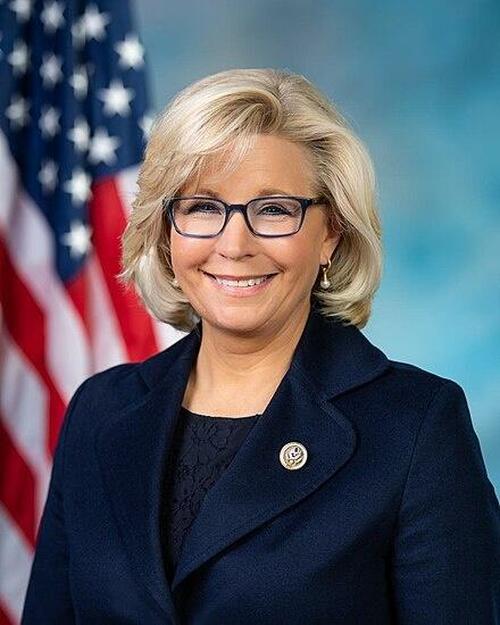Liz Cheney Under Fire For Allegedly Improper Contacts With Cassidy Hutchinson
Former J6 Committee Co-Chair and Rep. Liz Cheney has long been criticized for her role in creating a one-sided and at times erroneous record of what occurred on January 6th. That includes editing out Trump’s call for supporters to protest “peacefully,” burying evidence on Trump’s offer to supply National Guard support for that day, and highlighting a false account of Trump in his presidential limo that was directly contradicted by witnesses.
She now stands accused of unethically contacting a key represented witness to get her to change her testimony. In my view, ethical proceedings are unlikely after the disclosure of ex parte communications with former Trump aide Cassidy Hutchinson. However, the evidence seemingly contradicts public accounts of how Hutchinson decided to fire her counsel and change her testimony.
Hutchinson was represented by Stefan Passantino, who some clearly viewed as a stumbling block to getting Hutchinson to turn against Trump.
Hutchinson would claim under oath that Passantino pressured her to stay “loyal” to Donald Trump and coached her responses to support Trump despite her conflicting accounts.
However, newly disclosed evidence allegedly contradicts that account, including Hutchinson telling former Trump aide (and now The View co-host) Alyssa Farah Griffin that “[Passantino’s] not against me complying.”
Griffin reportedly responded “I actually agree with Stefan’s approach and think it’s accomplished everyone’s goals. I am happy to tip liz off.”
Hutchinson would later dump Passantino and testify to allegations that have been challenged as untrue. That includes the limo allegation that was repeatedly raised by Cheney and others. Hutchinson recounted the story that Trump allegedly grabbed the wheel of the vehicle after the Secret Service allegedly refused to take him to the Capitol.
Cheney and the Committee were aware that the account was directly and clearly refuted by the driver of the vehicle.
However, they buried his account and highlighted that claim in its final report as being credible.
The new allegation concerns the communications leading up to that changed testimony. Rep. Barry Loudermilk, R-Ga., chairman of the House Administration oversight subcommittee has released the new evidence while alleging that Cheney used an encrypted phone app to evade defense counsel in speaking with Hutchinson.
Under Rule 4.2 of the Rules of Professional Conduct, “a lawyer shall not communicate or cause another to communicate about the subject of the representation with a person known to be represented by another lawyer in the matter, unless the lawyer has the prior consent of the lawyer representing such other person or is authorized by law or a court order to do so.”
Cheney is a D.C. licensed lawyer.
At the outset, in my view, Cheney was acting as a member of Congress in this matter. That has always been a rather grey area for lawyers who are also members of Congress. The bar has taken a broad view of the need for lawyers to adhere to these ethical standards. However, it is not clear politically or ethically if the Bar officials would be inclined to pursue Cheney, who has been lionized in Washington for her role in the investigation.
Yet, the record does indicate that Cheney was not just aware of the represented status but the policy of the House to respect the rules governing represented parties. In one message Griffin tells Hutchinson, “Her one concern was so long ad [sic] you have counsel, she can’t really ethically talk to you without him.”
That did not appear to prove a barrier. Before Passantino withdrew as counsel, Cheney communicated secretly with Hutchinson. A later message was send to Cheney reading on June 6, “Hi, this is Cassidy Hutchinson. I’m sorry for reaching out this way, but I was hoping to have a private conversation with you (soon), if you are willing.”
Cheney responded, “I would be happy to. Let me know what time works for you.”
A few days later, Hutchinson fired Passantino, who told Just the News that “I absolutely had no knowledge at the time that Congresswoman Liz Cheney was communicating with my client behind my back – either directly, through her staff, or through cutouts.”
However, Cheney has claimed that it was Hutchinson who reached out to her and indicated that she was severing her counsel. As an investigating member of Congress, she had an institutional interest, if not a duty, to pursue witnesses.
In her memoir, Cheney said that it was Hutchinson who contacted her directly after her third interview and added “I was very sympathetic to her situation, but I did not want our committee to be advising her on what she should do next…I told Cassidy that she could consult another lawyer, and seek his or her independent advice on how best to move forward.”
We have previously discussed Passantino’s defamation lawsuit against MSNBC legal analyst and former Mueller aide Andrew Weissmann.
Once again, I am doubtful that this would rise to a formal Bar ethics investigation. However, the evidence shows the communications leading to Hutchinson’s firing of her counsel and changing of her testimony, including accounts later challenged by critics.
Hutchinson, Griffin, and Cheney have been reportedly campaigning together this month in support of Vice President Kamala Harris.
In the end, there are ethical concerns raised by these communications. Cheney should have worked through new counsel and proposing alternative counsel raises additional concerns given the interest of Cheney in having the witness “flip” against Trump. She could have waited for new counsel to communicate with her and the Committee.
Alternatively, Hutchinson could have fired her counsel and formally contacted the Committee as an unrepresented party. The ethical rules are designed to avoid this type of murky representational posture. Nevertheless, I am doubtful that this will result in any ethical proceedings against Cheney.
Tyler Durden
Wed, 10/16/2024 – 11:45

